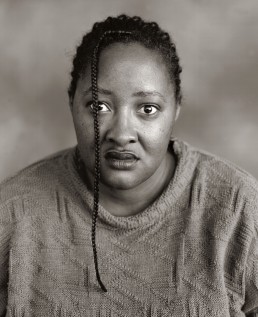S3: Fine Line - Episode 10 - Susan

Episode Information
Fine Line: Mental Health/Mental Illness – Episode 10 – Susan
[Intro Music]
Narrator: Welcome to Season three Fine Line narrative histories about mental health and mental illness, a traveling exhibition and weekly podcast edited and hosted by Michael Nye, supported by Kronkosky Charitable Foundation. May you find insight and understanding in these voices. Episode ten, Susan.
Susan: My worst fear is uncertainty, you’re not certain of anything, the constant anxiety. Not feeling comfortable In your own skin. So that ‘s fear to me. Fear is not knowing what’s coming next. The obsessive compulsive behavior, and the partial seizures have been around for a long, long time, because I had childhood friends tell me of things that I did. I can listen to a one verse for 10 or 15 hours straight over and over and over and over again a hundred times. You know, read the same magazine this, or just look at the same picture, or a certain movie and a certain frame of the movie that I wanted to see. I, I have no explanation. I just know that to the outside world, you look like a raving psychopath. And I know my neighbors, some of them must think that when I, uh, play my music, I used to be so embarrassed that I would put headphones on and only listen to my music through the headphones so that no one else could hear me be that compulsive. There is no such thing as normal, because I don’t care what they say or how, how well wrapped they act.
Everybody has a mental defect somewhere, especially the ones that are sweet and innocent and mention Jesus in every sentence. Those are the ones who are really hiding it. I check my front door lock about 50, 60 times a day. If you, if you’re in my home and you are with me every day, you could pick up my patterns. Uh, I try to hide it. I, I’m compulsive about keeping things clean, smelling the clean. I have to smell that it’s clean. Uh, uh, the smelling, it’s clean. It’s like elevates my mood. Another thing that I’m compulsive about is like, if I’m writing you a letter, there can’t be any hesitation, strokes. If the D doesn’t look neat or the a doesn’t look neat, I ball it up and throw it in the trash and start over. Believe me, any written work for me is, is, is flawless. It has to be flawless or, or, you know, I just can’t handle it. It’s crazy. Some of them, the things that I do. Um, but, um, to me, it’s my way of keeping order. The obsessive compulsive behavior. It’s like a calling, you know, like, I can be walking and see a, a drop of water on the counter and have to scrub the whole kitchen. It’s like a, a, um, a tap on your shoulder that you should go do this right now.
Yes. Oh, yes. Mm. I listen to this song over and over and over and over again as many times as I can. Sometimes 10, 15 hours a day, I, I, I feel, uh, stronger when I hear the music, when I feel normal. (Classical music playing) Those are the feelings that I have.
[Outro Music]
Host: No one really understands the life of another person. What biography is not a litany of competing complexities. A fingerprint is a topographical map with no clear guidance on how to live. These stories are not intended to summarize or explain anyone’s life. We all carry a thousand stories. I have a friend that teaches philosophy, written books about language, deep time aesthetics, and meaning. He told me, once I’ve gone through a series of obsessions in my life, it’s profoundly difficult. Probably the earliest was a form of extreme rebellion, and I was definitely a workaholic and have experienced addiction. I would think a lot of the highest achieving people have a streak of being obsessive compulsive, but it seems they were able to apply it in some constructive manner. Research indicates that OCD is in part due to a chemical brain imbalance. These unwanted thoughts can trigger extreme distress, embarrassment, anxiety, help and strategy and progress are available. Best estimates are that between two and 3 million adults in the United States have been living with obsessive compulsive disorder. Susan is a visual artist. She’s a painter. We spent three days together. She said, I hope speaking out about my own experience might help others and realize that we’re not alone. Susan voice is clear and powerful. Those that know her, admire her courage, her openness, her wisdom. Thank you, Susan, for your insights and your presence. May something in Susan’s story stay with you. I’m Michael Nye. You can go to my website, michaelnye.org/podcast for Susan’s portrait and transcript. Thank you for listening,
